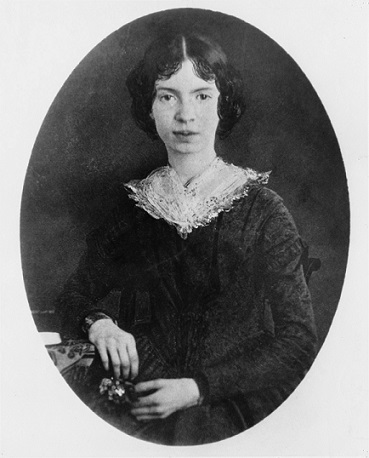|
home | what's new | other sites | contact | about |
||
|
Word Gems exploring self-realization, sacred personhood, and full humanity
Emily Dickinson You love me—you are sure—
Emily Dickinson (1830-1886)
You love me—you are sure— I shall not fear mistake— I shall not cheated wake—
As of typical Dickinson poems, this one too has no title. “You love me – you are sure –“ is a relatively short and concise poem of the narrator seeking for her lover’s confirmation of his love for her. The repetition of the phrase “you’re sure” stresses the narrator’s painful insecurity towards her lover’s love... The tone of the poem is one of uncertainty and questioning. It progresses from fake certainty to apparent appeal for assurance. The reason I say fake certainty is because although the first two stanzas start with “you are sure”, “I shall not fear” and “I need not start”, the narrator then proceeds to comfort herself by saying that she shall not find “the Sunrise left – And Orchards – unbereft—“ and “the windows dark”. This proves she has been pondering the situation for a long time, imagining what it’d be if her lover left. However, when it comes to the third stanza, she finally confronts her suspicions and questions her lover upfront, asking him to “just tell me so”. The narrator uses household imagery, garden plants, flowers and the sun to illustrate what the idea of comfort and security. When her lover is not sure of his love, the sunrise will leave, the windows will be dark, the house will be empty, and Dollie will be gone. She uses these to describe what it’d be like if her lover was gone, because these were all that were dear to Emily Dickinson, the poet. All her life she had lived in her father’s house and garden, never leaving the house at all. So by using nature and her home to describe her lover’s absence, it shows to us how very dear to her his certainty of his love is. The word “cheated” in the first stanza hints a connotation of an affair. She’s trying to convince herself that she shall not make a mistake and wake up being cheated to a “grinning” morning. She hopes that he day shall not mock her of her innocence and ignorance. Somehow, the narrator knows her lover doesn’t actually love her. That’s why she’s telling her lover to simply tell her the truth, and at the same time she’s also preparing herself for his heart-breaking words. This is why she says in the third stanza, “I’ll bear it better now— If you’ll just tell me so—“, it’s because she’s already hurting and doubting. However, she also says that, if he doesn’t tell her, her doubt and hurt will start to heal and she will trust in him. Then, if it is at that moment he decides to tell her, his words will sting, again. “Again” confirms our suspicion that she’s been hurt before, which also explains her preparedness. Adhering to the style of most other Emily Dickinson poems, this poem also has a wide used of capitalization of stressed words, and dashes between lines. In this particular poem, capitalized words are not many, and they mostly seem to refer to a person, or a virtue. “Dollie”, as seen in the context, mostly refers to her lover. At the end of the first two stanzas, the narrator repeats “and Dollie gone”, hinting his possible departure from her life. “Orchards” would mostly mean herself, as they would be “unbereft” if “Sunrise”, which refers also to her lover, leaves. Therefore, even though her lover leaves, she would be left behind. This also slightly hints her dependence towards her lover, because an orchard cannot live without the sun. Slowly trusting and healing over time, “dull Balm” would most probably be a metaphor of her hurting recovery and numb feelings. This poem is one of hurt and insecurity. The narrator has been hurt more than once, and is trying to comfort herself at first, but ends up questioning. The only wish for her is a confirmation of her lover’s love, and that he’ll never leave again, because she cannot live without him. However, because of his unfaithfulness towards her, she resolves to write this sincere bittersweet appeal to him
|
||
|
|
